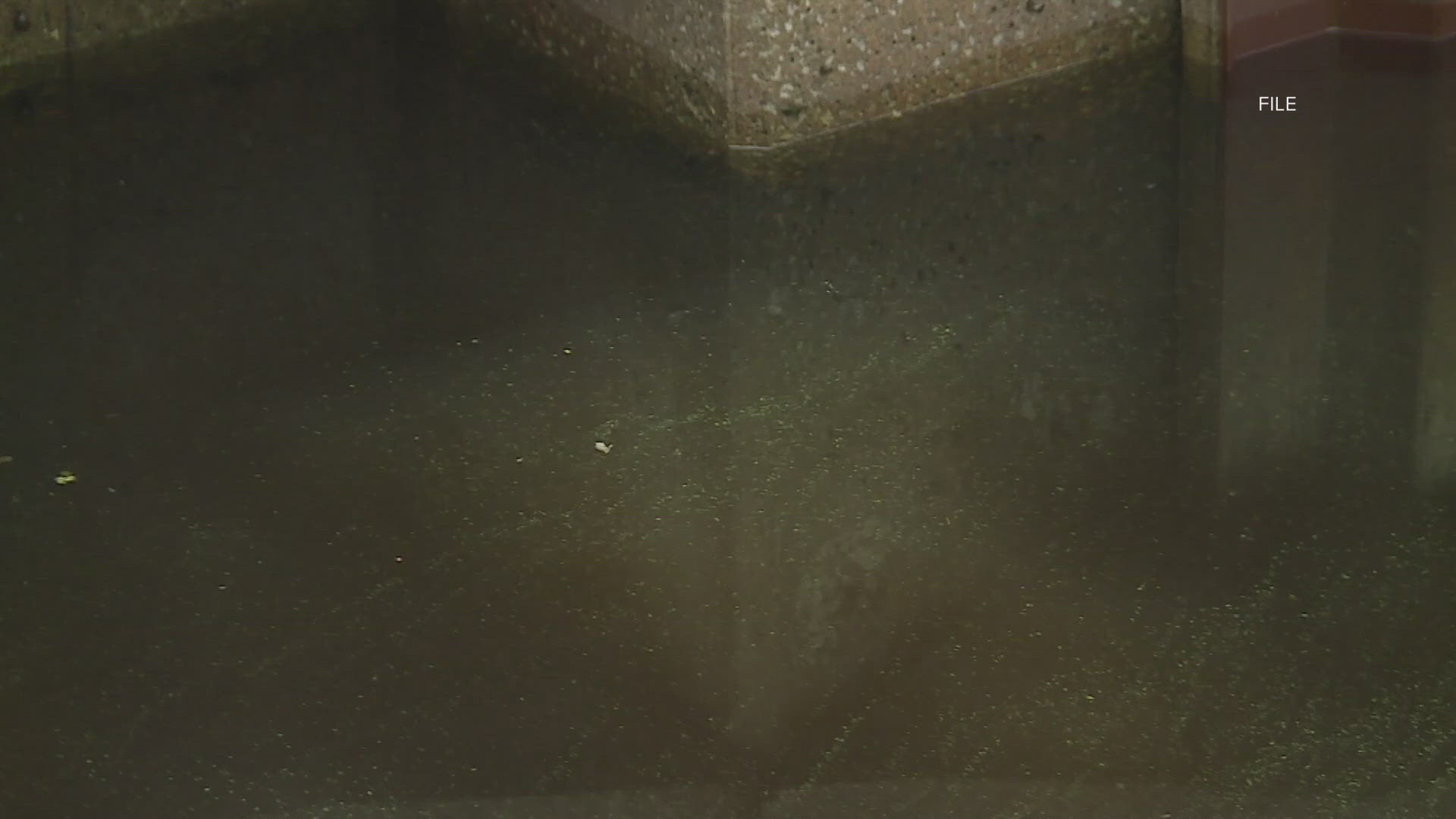JACKSONVILLE, Fla. — With boating, fishing and swimming sure to be popular activities for this Labor Day weekend in Jacksonville, residents and visitors are advised to be wary of blue-green algae.
The Florida Department of Health in Duval County issued an advisory Thursday cautioning the public of the presence of the growing and potentially toxic bacteria that looks like pea soup or green paint atop the water in the Ortega River — specifically in the area of Seminole and Stockton parks between Roosevelt Boulevard and San Juan Avenue. Water quality can be a concern, especially during Florida's summer heat.
It was noticeable on both Tuesday and Wednesday, prompting the alert and water sample testing, the Health Department said. The agency has issued previous alerts this summer for the St. Johns River in the area off Mandarin Road.
What does the Duval County Health Department advise about blue-green algae?
- Do not drink, swim, wade, use personal watercrafts, or come into contact with waterswhere there is a visible bloom.
- Wash your skin and clothing with soap and water if you have any contact with algae, ordiscolored or water that smells unpleasant.
- Keep pets and livestock away from the area to avoid any contact with water. Waterswhere algae blooms are present are not safe for animals. Pets and livestock should usean alternative source of water when algae blooms are present.
- Do not cook or clean dishes with water contaminated by algae blooms. Boiling the waterwill not eliminate toxins.
- Eating fillets from healthy fish caught in freshwater lakes experiencing blooms is safe.Rinse fish fillets with tap or bottled water, throw out the guts, and cook fish thoroughly.
- Do not eat shellfish in waters with algae blooms.
The Florida Department of Environmental Protection and its partners collect algae samples from reported bloom locations. After samples are analyzed at their laboratory, the toxin results can be viewed on the Environmental Protection’s Algal Bloom Dashboard.
What is blue-green algae?
The algae is a type of bacteria that is common in Florida’s freshwater environments. A bloom occurs when rapid growth of algae leads to an accumulation of individual cells that discolor water and often produce floating mats that emit unpleasant odors, according to the Health Department.
Blue-green algae blooms can also appear as scum, foam or paint on the surface of the water in various colors.
Some environmental factors that contribute to blue-green algae blooms are sunny days, warm water temperatures, still water conditions and excess nutrients, the Health Department said. Blooms can appear year-round but are more frequent in summer and fall.
Blue-green algae may not always be visible as a bloom, but it can still be present in the water.
Is blue-green algae harmful?
The department advises that blue-green algae can produce toxins that can be harmful to people and pets as well as ecosystems, including fish and other aquatic animals. Sensitive individuals (e.g., children, the elderly and those who are immunocompromised) may still be at risk even at low concentrations and should avoid any exposure.
For additional information on potential health effects of algae blooms, visit the agency's harmful algae blooms webpage.
Where can you find current water status information?
Current information about Florida’s water quality status and public health notifications for harmful algae blooms and beach conditions is available at Protecting Florida Together. Residents can subscribe to receive notifications when water quality changes in their area.
Where can you report issues related to algae blooms?
- Algae Blooms: The Environmental Protection Department monitors algae blooms and collects samples for analysis. Blooms can be reported to the agency online or by calling toll-free at (855) 305-3903.
- Human Health Impacts: Report symptoms from exposure to a harmful algae bloom or any aquatic toxin to the Florida Poison Information Center by calling (800) 222-1222 to speak to a poison specialist.
- Animal Health Impacts: Contact your veterinarian if you believe your pet has become ill after consuming or having contact with blue-green algae-contaminated water.
- Fish Kills: Dead, diseased, or abnormally behaving fish or wildlife should be reported to the Florida Fish and Wildlife Conservation Commission online or at (800) 636-0511. If you have other health questions or concerns about blue-green algae, call the Duval County Health Department at (904) 253-1280.
This story was first published by The Florida Times-Union.

